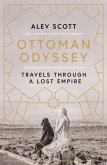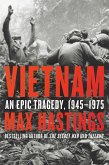This book, for the first time, investigates documentary aesthetics as a formative trend in post-war Eastern Europe. Its contributions reconstruct major artistic practices and their theoretical reflections within the broader cultural-political horizon of the turbulent 1960s.
Hinweis: Dieser Artikel kann nur an eine deutsche Lieferadresse ausgeliefert werden.
Hinweis: Dieser Artikel kann nur an eine deutsche Lieferadresse ausgeliefert werden.








